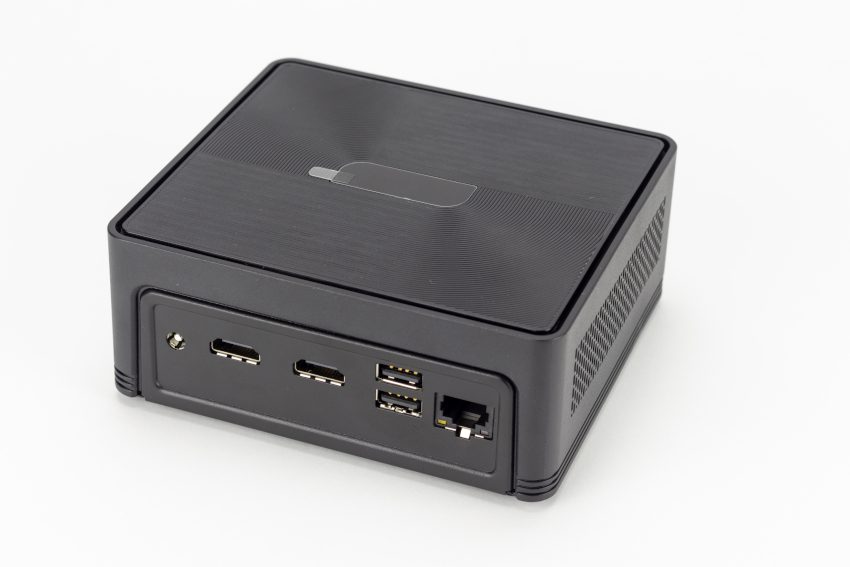
Revolutionizing Computing in a Compact Form
In the dynamic landscape of computing technology, mini computers https://www.techme.club/ stand out as versatile solutions that pack immense power into a compact form factor. Unlike their larger counterparts, mini computers offer a balance between performance, size, and energy efficiency, making them ideal for various applications ranging from industrial automation to educational purposes.
Introduction to Mini Computers
Mini computers, also known as minicomputers or mini PCs, are computing devices that deliver significant processing power and functionality in a small and portable package. They occupy the middle ground between traditional desktop computers and mobile devices, offering a compelling combination of performance and convenience.
Definition and Significance
Mini computers are characterized by their compact size, typically much smaller than conventional desktop towers. Despite their diminutive dimensions, these devices are capable of handling a wide range of computing tasks, from basic office productivity to multimedia editing and gaming.
Evolution of Mini Computers
The concept of miniaturized computing dates back to the mid-20th century, with early examples such as the DEC PDP-8 paving the way for modern mini computers. Over the decades, advancements in semiconductor technology and design have enabled manufacturers to shrink the size of computing components while enhancing performance and efficiency.
Features of Mini Computers
Compact Size
One of the defining features of mini computers is their small form factor, which allows them to fit into tight spaces and be easily transported. This makes them ideal for applications where space is limited, such as kiosks, digital signage, and embedded systems.
High Performance
Despite their size, mini computers are equipped with powerful processors, ample memory, and fast storage solutions. This enables them to handle demanding tasks with ease, including multimedia playback, software development, and virtualization.
Low Power Consumption
Mini computers are designed to be energy-efficient, consuming far less power than traditional desktop PCs. This not only reduces electricity bills but also makes them suitable for use in environments where power may be limited or expensive.
Applications of Mini Computers
Mini computers find widespread use across various industries and domains, thanks to their versatility and compact design.
Industrial Automation
In industrial settings, mini computers serve as control systems for machinery, monitoring equipment performance and facilitating process automation. Their small footprint and rugged construction make them well-suited for deployment in harsh environments such as factories and manufacturing plants.
Embedded Systems
Mini computers are often integrated into embedded systems, powering devices such as point-of-sale terminals, digital cameras, and smart appliances. Their low power consumption and high reliability make them ideal for embedded applications where space and energy efficiency are paramount.
Education Sector
In educational institutions, mini computers are utilized to teach programming, robotics, and other STEM subjects. Their affordability and ease of use make them accessible to students and educators alike, fostering creativity and innovation in the classroom.
Advantages of Mini Computers
Cost-Effectiveness
Mini computers offer a cost-effective alternative to traditional desktop PCs, with prices starting at a fraction of the cost of larger systems. This makes them an attractive option for budget-conscious consumers and organizations seeking to maximize their computing resources without breaking the bank.
Flexibility
With their small size and modular design, mini computers can be easily customized and upgraded to suit specific requirements. Users can choose from a wide range of hardware components and peripherals, allowing for a high degree of flexibility and scalability.
Portability
Mini computers are lightweight and portable, making them ideal for use in a variety of environments. Whether deployed in a remote office, a classroom, or a conference room, these devices can be easily transported and set up wherever they are needed.
Disadvantages of Mini Computers
Limited Processing Power
Despite their impressive performance, mini computers are not as powerful as their larger counterparts such as desktop workstations or servers. This may limit their suitability for certain compute-intensive tasks such as 3D rendering or scientific simulations.
Limited Expansion Capabilities
Due to their compact size, mini computers may have limited expansion options compared to traditional desktop PCs. While they often feature multiple USB ports, HDMI outputs, and other connectivity options, there may be constraints on adding additional internal components such as expansion cards or storage drives.
Comparison with Other Computing Devices
Mini Computers vs. Microcomputers
While mini computers and microcomputers share similarities in terms of size and form factor, they differ in terms of performance and capabilities. Mini computers are typically more powerful and versatile than microcomputers, making them better suited for multitasking and resource-intensive applications.
Mini Computers vs. Mainframe Computers
In contrast to mainframe computers, which are large-scale systems designed for high-performance computing and data processing, mini computers are smaller in size and intended for use in smaller-scale applications. While mainframes excel at handling massive workloads and supporting large numbers of users, mini computers are better suited for tasks that require moderate computing power and flexibility.
Popular Mini Computer Brands
Several manufacturers produce mini computers, each offering a unique combination of features and capabilities.
Raspberry Pi
The Raspberry Pi is a popular choice among hobbyists, students, and DIY enthusiasts, offering a low-cost, single-board computer platform that can be used for a wide range of projects. With its vibrant community and extensive ecosystem of accessories and software, the Raspberry Pi has become synonymous with affordable computing.
Intel NUC
Intel’s Next Unit of Computing (NUC) is a compact desktop computer kit that packs powerful Intel processors and high-speed storage into a small form factor.

